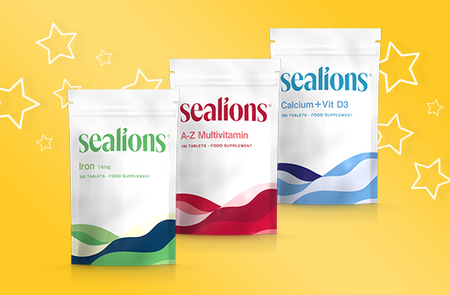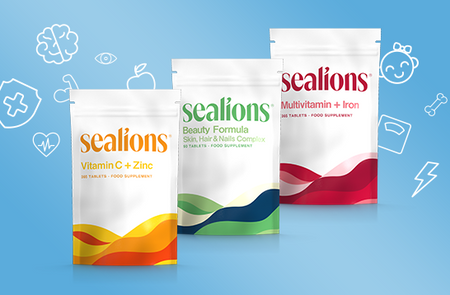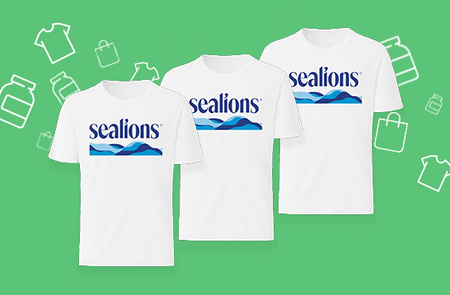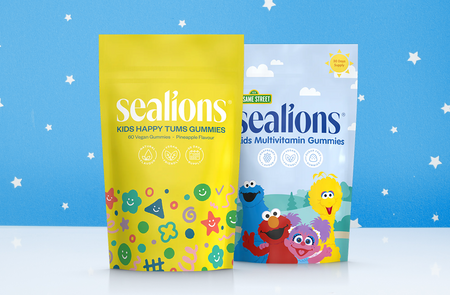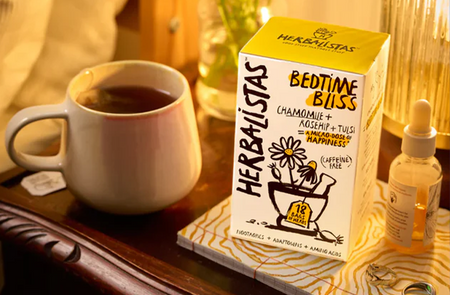
Should I Be Taking A Vitamin D Supplement?
The past couple of years have been tough on all of us – especially on our health. And as we head into the colder months, even if you’ve not picked up a case of the dreaded winter flu, you might be feeling a little out of sorts. Lethargic, lacking in energy and under the weather.
It turns out that when the days are shorter, and we’re getting less fresh air and natural sunlight, it isn’t just bad for our mental wellbeing and happiness. It can be bad for our physical health too.
It’s all down to one vitamin in particular. It’s Vitamin D.
During winter months, more and more people across the UK are finding that a Vitamin D supplement makes a whole world of difference to their health.
What does Vitamin D do?
Vitamin D is one of the essential micronutrients that all of our bodies need to work properly. And it’s an amazingly powerful vitamin that’s responsible for lots and lots of things.
Your body uses Vitamin D to:
- Keep our bones healthy
- Keep our teeth healthy
- Build muscles and keep them healthy
- Create the proteins that our immune system uses to attack bacteria and viruses
- Create healthy skin (that looks great)
From all that, it’s easy to see why having enough Vitamin D is a good thing. But what happens if you don’t get enough of this essential micronutrient?
Well, the answers aren’t good.
Vitamin D deficiencies have been linked to a range of issues that none of us would like to have to deal with at the best of times. A lack of Vitamin D has been shown to cause or worsen:
- Depression
- Hair Loss
- Fatigue
- Muscle Pain
- Recurrent Infections
- Bone Pain
Wow. It looks like we all need to make sure we get enough Vitamin D. But why is this such a problem during winter?
Why is Vitamin D in winter a problem?
Here’s something odd. Our body isn’t great at absorbing Vitamin D from foods. While we can get it from oily fish like salmon, kippers and sardines, from eggs and meat, and from breakfast cereals that have been fortified with vitamins, it turns out that we don’t get most of our Vitamin D from what we eat.
We actually get it from sunlight.
When our bodies are exposed to direct sunlight, our skin reacts to the UV radiation from the sun and starts to create more and more Vitamin D. It’s completely automatic, and it’s our primary way of getting this all-important micronutrient.
But there’s a problem.
We need to be in direct sunlight to get Vitamin D. If our skin is covered by clothes, or there’s a window in the way, or we’re slathered in sunscreen, our bodies can’t make as much Vitamin D.
It’s a problem every winter. A combination of clouds, short days, drizzle and thick coats mean we don’t get much direct sunlight during the winter months – we’re left relying on the odd smoked salmon and scrambled egg breakfast to try and give us enough Vitamin D to build our bones, our skin, our teeth, our muscles and our immune systems.
That’s just not enough Vitamin D.
What are the experts saying?
Experts have expressed concerns about the amount of Vitamin D that the UK population is getting, with research showing that millions of us just don’t get enough!
- 74% of Brits get less than the optimum amount of Vitamin D
- 27% have a Vitamin D deficiency
- Under 5s, over 65s, pregnant women and those with darker skin are most at risk
- Women are more likely than men to get too little Vitamin D
That seems clear to us – millions of us could benefit from a taking a daily supplement. But how much Vitamin D do you need?
How much Vitamin D supplement should I take?
To get all of the Vitamin D you need from food, you’d need to wolf down five cans of sardines every single day. That’s easy if you’re a dolphin – not so easy if you’re a human being who doesn’t want to smell of tinned fish.
Instead, you need to take a daily supplement that’s rich in Vitamin D. How much you actually need to take depends on your age, gender, and your ethnicity:
- Infants (breast-fed and formula fed): 8.5-10 micrograms per day
- Children aged 1-4: 10 micrograms per day
- Everyone aged 5+: at least 10 micrograms per day
Those who spend all day inside, those who cover their skin for cultural or professional reasons, and those with darker skin should also take at least 10 micrograms of Vitamin D per day.
What other vitamins can help support my immunity?
It’s not just Vitamin D that you may feel the benefits of supplementing – your body is a complex machine that needs dozens of different micronutrients to function properly.
Some other essential nutrients to pay careful attention to are:
- Vitamin A – which helps cells to grow, including the cells which make up your immune system
- Vitamin C – which has been proven to help you recover faster from a range of illnesses and viruses
- Potassium – which helps keep your blood pressure controlled
- Zinc – which has also been shown to help you get better quickly if you pick up a bug or a cold
Whether it’s the sunshine goodness of Vitamin D, the immune-boosting Vitamin C, or a broad range of daily vitamins that you’re looking to add to your health and wellbeing regimen, Sealions range of supplements is the affordable, accessible way to get more of what your body needs.
So take a look through our online store, and start planning your daily vitamin supplements for the remainder of 2022 and beyond!
And as always, here’s to your good health!
Tagged:

